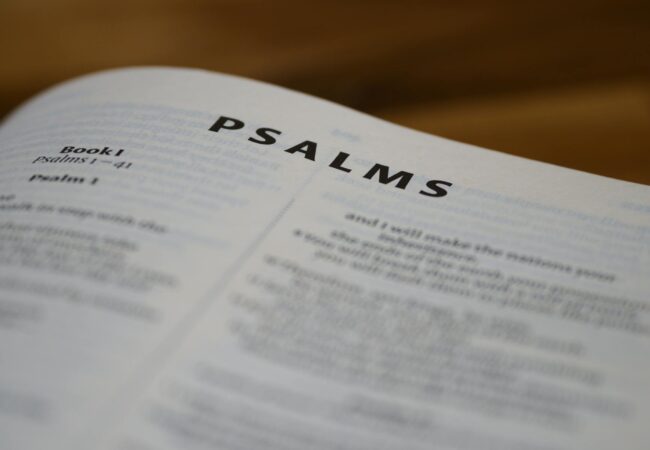Exploring the Paradox: God’s Hatred of Sin and the Creation of the Knowledge of Good and Evil
If God Hates Sin, Why Did He Create the Knowledge of Good and Evil?
This profound question has puzzled theologians, scholars, and believers for centuries. At the heart of this inquiry lies a paradox that challenges our understanding of divine nature and intention. Why would a benevolent and omnipotent God, who detests sin, introduce a concept that seems to pave the way for disobedience and moral downfall?
This article will delve into the depths of this theological enigma, exploring the significance of free will, the purpose of the knowledge of good and evil, and the broader implications for humanity’s relationship with the divine.
Join us on this journey to uncover the profound truths hidden within this age-old question.
“And the Lord God commanded the man, ‘You are free to eat from any tree in the garden; but you must not eat from the tree of the knowledge of good and evil, for when you eat from it you will certainly die.'”
Genesis 2:16-17 (NIV):
In these verses, God commands Adam, granting him freedom within the Garden of Eden but with one critical restriction. This boundary set by God introduces the concept of divine law and human responsibility, laying the groundwork for the unfolding drama of human choice and divine grace.

The Significance of the Tree
- Symbol of Free Will: The presence of the tree represents the gift of free will. For love and obedience to be genuine, they must be chosen freely. By placing the tree in the garden, God allows humans to exercise their free will, making their relationship with Him a matter of choice rather than compulsion.
- Understanding Good and Evil: The tree of the knowledge of good and evil symbolizes the ability to discern moral values and make ethical choices. Before eating from the tree, Adam and Eve lived in innocent obedience. Eating from the tree opened their eyes to the complexities of moral decisions, introducing them to the reality of sin and its consequences.
- Divine Test of Obedience: The command not to eat from the tree tests Adam and Eve’s obedience and trust in God. It underscores the importance of following God’s directives and recognizing His authority. The choice to obey or disobey reflects their relationship with God and their understanding of His wisdom and goodness.
The Consequences of Disobedience
When Adam and Eve chose to eat from the tree, they exercised their free will in opposition to God’s command. This act of disobedience, often referred to as “the Fall,” brought sin and death into the world. It marked a fundamental change in the human condition, introducing separation from God, shame, and the awareness of moral responsibility.
God’s Sovereign Plan and the Ability of Forgiveness
Despite the entrance of sin into the world, God’s overarching plan includes redemption, restoration, and forgiveness. The creation of the knowledge of good and evil and the allowance of free will highlight the depth of God’s love and His desire for a genuine, loving relationship with humanity. Through Jesus Christ, the ultimate sacrifice for sin, God provides a path for reconciliation and eternal life.
Romans 5:12-19
Another scripture that addresses this topic is found in the New Testament, specifically in Romans:
Romans 5:12-14 (NIV): “Therefore, just as sin entered the world through one man, and death through sin, and in this way death came to all people, because all sinned— To be sure, sin was in the world before the law was given, but sin is not charged against anyone’s account where there is no law. Nevertheless, death reigned from the time of Adam to the time of Moses, even over those who did not sin by breaking a command, as did Adam, who is a pattern of the one to come.”
Romans 5:15-17 (NIV): “But the gift is not like the trespass. For if the many died by the trespass of the one man, how much more did God’s grace and the gift that came by the grace of the one man, Jesus Christ, overflow to the many! Nor can the gift of God be compared with the result of one man’s sin: The judgment followed one sin and brought condemnation, but the gift followed many trespasses and brought justification. For if, by the trespass of the one man, death reigned through that one man, how much more will those who receive God’s abundant provision of grace and of the gift of righteousness reign in life through the one man, Jesus Christ!”
Romans 5:18-19 (NIV): “Consequently, just as one trespass resulted in condemnation for all people, so also one righteous act resulted in justification and life for all people. For just as through the disobedience of the one man the many were made sinners, so also through the obedience of the one man the many will be made righteous.”
The Significance of Romans 5:12-19
- Sin and Death through Adam: Paul’s explanation reinforces the idea that the knowledge of good and evil introduced the reality of sin and its consequences—death. This aligns with the Genesis account, where disobedience leads to separation from God and the onset of mortality.
- God’s Grace and Redemption: The passage highlights the abundance of God’s grace. While sin entered the world through one man’s disobedience, salvation and righteousness come through Jesus Christ’s obedience. This juxtaposition showcases God’s plan to address sin and its consequences through His mercy and love.
- Proclaiming God’s Glory: The contrast between Adam’s trespass and Christ’s redemptive act proclaims God’s glory. It demonstrates His justice in condemning sin and His profound love in providing a way for reconciliation. The narrative of fall and redemption ultimately magnifies God’s character and His redemptive plan for humanity.
- The Role of Forgiveness: God’s provision of grace and righteousness through Jesus Christ underscores the importance of forgiveness. It illustrates that despite the presence of sin, God’s ultimate plan is to offer forgiveness and restore the broken relationship between Him and humanity.
The Greater Purpose
The narrative of the tree of the knowledge of good and evil is not merely about the Fall but also about the unfolding of God’s grand design to reveal His nature and proclaim His glory. It demonstrates His holiness, the seriousness of sin, and the depth of His love. By allowing the possibility of sin, God provides the opportunity to showcase His redemptive power and the ultimate triumph of good over evil.
The creation of the knowledge of good and evil, as depicted in Genesis 2:16-17 and explained in Romans 5:12-19, serves a profound purpose in God’s divine plan. It proclaims His glory, reveals His moral authority, and illustrates the gift of free will. While sin entered the world through disobedience, God’s redemptive plan through Jesus Christ showcases His justice, mercy, and the ability to forgive. This narrative invites us to recognize our dependence on God, to trust in His perfect wisdom, and to embrace the transformative power of His forgiveness in our lives.
For further reading on these topics, check out the following links:



